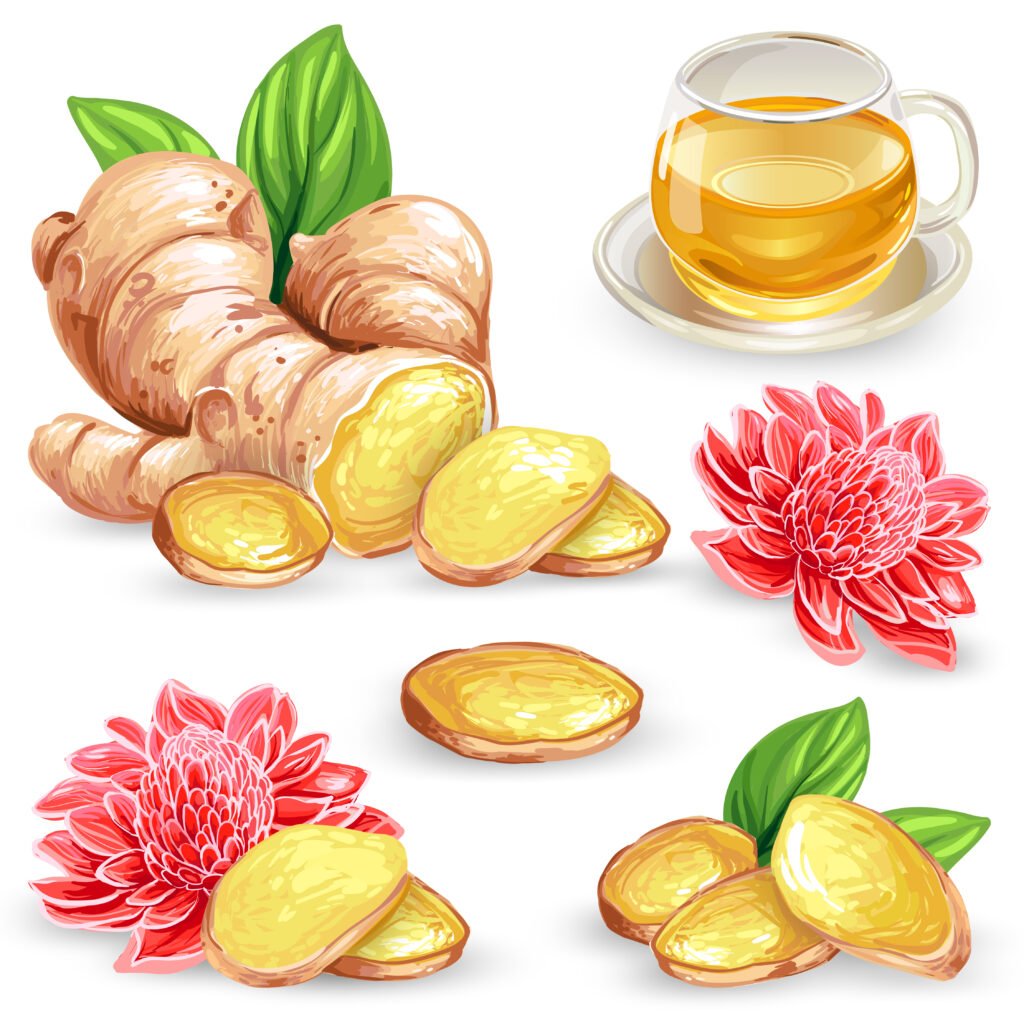In the realm of integrative medicine, where the wisdom of ancient practices meets the rigor of modern science, turmeric stands out as a golden beacon of health and wellness. This vibrant yellow spice, derived from the root of the Curcuma longa plant, has been cherished for centuries in traditional Indian and Chinese medicine. Today, it is celebrated worldwide for its potential health benefits, making it a staple in both kitchens and clinics.
The Science Behind the Spice
Turmeric’s primary active compound, curcumin, is the star of the show. Curcumin is a polyphenol with potent anti-inflammatory and antioxidant properties. Research has shown that it can modulate multiple signaling molecules, and its ability to influence various biochemical activities makes it a promising candidate for a wide range of therapeutic applications (Gupta et al., 2013).
Integrative Approaches to Health
- Anti-Inflammatory Powerhouse: Chronic inflammation is at the heart of many modern ailments, including heart disease, cancer, and neurodegenerative conditions. Curcumin’s ability to inhibit molecules like NF-kB, which play a key role in inflammatory processes, has been well-documented (Aggarwal et al., 2007).
- Joint Health and Pain Management: For those suffering from arthritis, turmeric offers a natural alternative to synthetic pain relievers. Studies have shown that curcumin can reduce joint pain and improve mobility in patients with osteoarthritis and rheumatoid arthritis (Henrotin et al., 2013).
- Digestive Health: Turmeric’s role in promoting digestive health is another area of interest. It stimulates bile production, which aids digestion and supports liver function. This makes it a valuable ally for individuals with digestive disorders like irritable bowel syndrome (IBS) (Goel et al., 2008).
- Cognitive Function and Mental Health: Emerging research suggests that curcumin may enhance cognitive function and protect against neurodegenerative diseases. Its ability to cross the blood-brain barrier and reduce oxidative stress and inflammation in the brain holds promise for conditions like Alzheimer’s disease (Small et al., 2018).
- Cancer Prevention and Treatment: Curcumin’s potential in cancer therapy is being explored extensively. Its ability to induce apoptosis (programmed cell death) in cancer cells without affecting healthy cells highlights its therapeutic promise. Furthermore, it can enhance the efficacy of certain chemotherapy agents while mitigating their side effects (Sharma et al., 2005).
Incorporating Turmeric into Daily Life
Integrative medicine emphasizes the importance of lifestyle and dietary changes alongside conventional treatments. Turmeric can be easily incorporated into daily routines. Here are some practical tips and recipes:
Basic Turmeric Recipes
1- Turmeric Tea (Golden Tea)
- Ingredients: 1 cup of water, 1/2 teaspoon of turmeric powder, 1/4 teaspoon of black pepper, 1 teaspoon of honey or maple syrup (optional), Lemon wedge (optional)
- Instructions: Boil water, add turmeric and black pepper, simmer for 5 minutes, strain, and add honey and lemon if desired.
2- Turmeric Smoothie
- Ingredients: 1 banana, 1 cup of almond milk, 1/2 teaspoon of turmeric powder, 1/4 teaspoon of cinnamon, 1/2 teaspoon of ginger powder, 1 teaspoon of chia seeds, Ice cubes (optional)
- Instructions: Blend all ingredients until smooth, serve immediately.
3- Turmeric Rice
- Ingredients: 1 cup of basmati rice, 2 cups of water, 1 teaspoon of turmeric powder, 1 tablespoon of olive oil or butter, Salt to taste, Optional: 1/4 cup of peas or chopped carrots
- Instructions: Rinse rice, heat oil/butter, add turmeric, stir in rice, add water and salt, simmer until cooked.
Specific Recipes for Health Conditions
4- Anti-Inflammatory Turmeric Soup
- Ingredients: 1 tablespoon olive oil, 1 onion, 2 garlic cloves, 1 teaspoon turmeric, 1 teaspoon ginger, 4 cups vegetable broth, 2 carrots, 1 cup broccoli, Salt and pepper, Fresh parsley
- Instructions: Sauté onion and garlic in oil, add spices, then broth and vegetables, simmer until tender, garnish with parsley.
5- Digestive Aid: Turmeric Yogurt Dip
- Ingredients: 1 cup Greek yogurt, 1/2 teaspoon turmeric powder, 1/4 teaspoon cumin powder, 1 tablespoon lemon juice, Salt, Fresh cilantro
- Instructions: Mix all ingredients, garnish with cilantro, serve with vegetables or bread.
These recipes not only make it easy to incorporate turmeric into your diet but also allow you to enjoy its potential health benefits. Whether you’re looking to reduce inflammation, support digestion, or simply enjoy a nutritious meal, these dishes offer a flavorful and healthful way to do so.
Conclusion
Turmeric’s integration into modern medicine exemplifies the harmonious blend of tradition and science that defines integrative medicine. While more research is needed to fully understand its mechanisms and optimize its use, the current evidence supports its role as a valuable component of a holistic health strategy. As we continue to explore and validate the myriad benefits of this golden spice, turmeric remains a testament to the enduring power of natural remedies in promoting health and well-being.
References
- Aggarwal, B. B., Sundaram, C., Malani, N., & Ichikawa, H. (2007). Curcumin: the Indian solid gold. Advances in Experimental Medicine and Biology, 595, 1-75.
- Goel, A., Kunnumakkara, A. B., & Aggarwal, B. B. (2008). Curcumin as “Curecumin”: from kitchen to clinic. Biochemical Pharmacology, 75(4), 787-809.
- Gupta, S. C., Patchva, S., & Aggarwal, B. B. (2013). Therapeutic roles of curcumin: lessons learned from clinical trials. The AAPS Journal, 15(1), 195-218.
- Henrotin, Y., Priem, F., & Mobasheri, A. (2013). Curcumin: a new paradigm and therapeutic opportunity for the treatment of osteoarthritis: curcumin for osteoarthritis management. SpringerPlus, 2(1), 56.
- Sharma, R. A., Gescher, A. J., & Steward, W. P. (2005). Curcumin: the story so far. European Journal of Cancer, 41(13), 1955-1968.
- Small, G. W., Siddarth, P., Li, Z., Miller, K. J., Ercoli, L. M., Emerson, N. D., Martinez, J., Wong, K. P., Liu, J., Merrill, D. A., & Huang, S. C. (2018). Memory and brain amyloid and tau effects of a bioavailable form of curcumin in non-demented adults: a double-blind, placebo-controlled 18-month trial. The American Journal of Geriatric Psychiatry, 26(3), 266-277.
